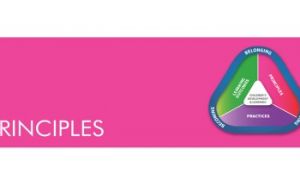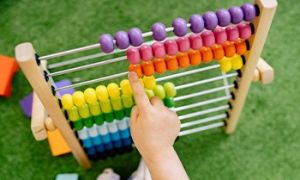Mentoring is a hugely beneficial way for early childhood services to build the professional capacities of new educators as well as leadership capacities for their own organization. However, the success of a mentoring programme depends to a large extent on the efficacy of mentors. The following article provides strategies such as the Roles and Responsibilities, Who Can Be A Mentor and Requirements Of An Effective Mentor in an early childhood setting.
Roles and Responsibilities
The mentor’s role is to help the mentee progress successfully from one stage to the next - it could be from a beginning teacher to an experienced teacher or from an experienced teacher to a leader. This is done by:
- Supporting the mentee to develop requisite knowledge, skills, capabilities
- Guiding the mentee with different processes like goal setting, planning, practising skills, evaluating progress and implementing improvement measures.
- Encouraging reflection and self-assessment
- Providing emotional support
- Inducting mentees into the workplace culture and organizational ethos of the service
- Being a role model.
Who Can Be A Mentor?
Ideally, a line supervisor should not be made the mentor as a hierarchical relationship may not be a supportive environment for a mentee to be reflective. Other possibilities of a mentor are the educational leader, an educator working within another room in the setting or another setting of the same organisation. Outside the service, a new educator can find mentorship in a supervisor or lecturer from a previous university or vocational training, an experienced educator assisting with evidence-gathering for teacher registration or met through an educator network.
Requirements Of An Effective Mentor
In the context of early education services, a mentor should possess the following to be truly effective:A thorough understanding of the Early Childhood landscape including approved learning frameworks, regulatory requirements and different early learning approaches. In Australia, these would cover the Early Years Learning Framework, the National Law that governs early education and care, the National Quality Standards as well as other regulations applicable to both early education and out-of-school care contexts. A good mentor should also be able to utilise the understanding of the developmental stages of children aged 0-8 to inform practice and be aware of developments in early childhood education and development.
A clear understanding of both the mentoring process and relationship so that they are not only able to clarify the roles and responsibilities of both mentors and mentees but set appropriate goals with the mentee, support mentees in working towards them and reflect on outcomes. Additionally, an effective mentor is also expected to model the values and philosophy of the service and help the mentee to adopt them. Strong communication skills are needed to build the mentoring relationship as well as achieve process goals. Some of these skills are active listening, open-ended questioning and reflecting, providing constructive feedback and empathising. An ability to meet the mentee’s professional learning goals. To do this a mentor needs to recognize the mentee’s strengths and areas for improvement, consider the career paths open within the service and sector and then support the mentee with acquiring the skills and knowledge needed to meet professional goals. Additionally, the mentor also has to be sensitive to the developmental needs and cultural specificities of the mentee which might influence career goals and achievement. Necessary dispositions like empathy, interpersonal skills, flexibility, approachability and genuine interest in helping new educators.
Further Reading
Strategies For New Educators Starting In Early Childhood Services - The following article provides practical strategies for a new educator starting in early childhood services, to help you give your professional best.
A Guide For Educational Leaders In Early Childhood Settings - The following article includes information on the Roles and Responsibilities Of An Educational Leader, Supporting Educators, Supporting Continuous Improvement of the Service and more.
Duties Of A Room Leader In Childcare - The following article provides information on the Roles and Responsibilities of a room leader, Communicating With Staff, Delegating Jobs, Programming and Planning and more.
Managing Underperforming Educators - The following article is a guide for Lead Educators/Directors and those in charge of Educators within a setting, to understand underperformance, common performance issues, how to solve them and more.
References:
- New Educator Survival Guide
- Mentoring Matters







 As an Educator in Australia, your pay rate falls under the Children’s Services Award 2010. This award states the minimum amount that an employer can
As an Educator in Australia, your pay rate falls under the Children’s Services Award 2010. This award states the minimum amount that an employer can When working as a qualified Early Childhood Teacher (with a university degree) within a service, your rate of pay will come from the Educational Services
When working as a qualified Early Childhood Teacher (with a university degree) within a service, your rate of pay will come from the Educational Services When working as a Diploma Qualified Educator your pay rate is from the Children's Services Award 2010. This Award states your minimum rate of pay
When working as a Diploma Qualified Educator your pay rate is from the Children's Services Award 2010. This Award states your minimum rate of pay When working as a Cert 3 Qualified Educator, your pay rate is from the Children's Services Award 2010. This Award states your minimum rate of
When working as a Cert 3 Qualified Educator, your pay rate is from the Children's Services Award 2010. This Award states your minimum rate of Educational Leaders play a crucial role in their early childhood service by ensuring that the educational program aligns with best practices and supports the holistic
Educational Leaders play a crucial role in their early childhood service by ensuring that the educational program aligns with best practices and supports the holistic In early childhood education and care, ratios are more than a technicality—they are a frontline safeguard. Every child deserves responsive supervision, emotional connection, and developmental
In early childhood education and care, ratios are more than a technicality—they are a frontline safeguard. Every child deserves responsive supervision, emotional connection, and developmental With the new national child safety reforms kicking in on 1 September 2025, early childhood services like yours have a real opportunity to lead the
With the new national child safety reforms kicking in on 1 September 2025, early childhood services like yours have a real opportunity to lead the Here’s a comprehensive Mobile Phone and Smart Watch Policy tailored for early childhood education and care (ECEC) services in Australia, aligned with the latest 2025
Here’s a comprehensive Mobile Phone and Smart Watch Policy tailored for early childhood education and care (ECEC) services in Australia, aligned with the latest 2025 The Sea of Fish Challenge is a national initiative that invites children, educators, families, and communities to create and display fish artworks as a symbol
The Sea of Fish Challenge is a national initiative that invites children, educators, families, and communities to create and display fish artworks as a symbol Across the early childhood education and care sector, educators are sounding the alarm: current staffing ratios are insufficient to deliver safe, meaningful, and developmentally appropriate
Across the early childhood education and care sector, educators are sounding the alarm: current staffing ratios are insufficient to deliver safe, meaningful, and developmentally appropriate


